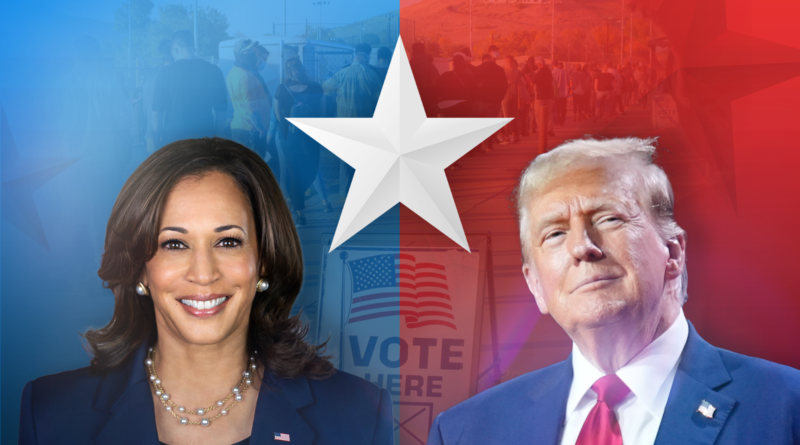Ultimate Guide to the US Election: Voting Date, Candidates, and How the Electoral College Works
The US election is fast approaching and voters across the nation’s 50 states will be preparing to head to the polls.
It’s been another presidential race full of dramatic twists and turns, with just a few months to go before election day on Tuesday 5 November.
The US is guaranteed a new president, but understanding the way it happens can be challenging.
This guide will explain how it all works; from who is in the running to how votes are cast and what the Electoral College is. Plus, why is election day always on a Tuesday?
Who is running?
There are five candidates in the running for the presidency, but it’s incredibly rare that any parties outside of the Democrats and Republicans are competitive in elections.
Kamala Harris – Democrat
The current vice president was endorsed by President Joe Biden shortly after he withdrew from the race in July.
It came after questions were raised over his fitness for office and rumours had begun circulating that his campaign team was assessing whether Ms Harris could take over.
She was officially declared the Democratic Party candidate in early August and immediatly launched a campaign, often criticising opponent Donald Trump on the trail.
At the Democratic National Convention, she attacked the former president by framing his time in the White House as “chaos and calamity” and insisting: “We are not going back!”
She warned voters about the prospect of a second Trump term, describing him as self-serving, criticising his recent fraud charges, and warning about his immunity from criminal prosecution by posing the question: “Just imagine Donald Trump with no guardrails.”
Ms Harris has been serving as vice president since Mr Biden was elected in the 2020 election.
Donald Trump – Republican
Mr Trump is running for a third time having won his first election in 2016 and lost four years later to Mr Biden.
He has had a whirlwind of a campaign so far.
The former businessman outperformed a struggling Mr Biden in an extraordinary debate in June, survived an assassination attempt at a rally in July and had his rival drop out of the race shortly after.
Analysts believed Mr Trump was pulling away from the Democrats during the summer, but the Democrats’ switch to Ms Harris took attention away from the billionaire and appears to have unified the party.
He, like Ms Harris, has launched personal attacks on his opponent, regularly calling her “Comrade Kamala Harris”, accusing her of “fake Indian heritage” and being “weak and ineffective”.
He recently criticised Ms Harris for her government’s record on crime, the economy and illegal immigration – even suggesting she would take America “into a nuclear World War Three”.
Jill Stein – Green Party
Ms Stein is no stranger to long-shot presidency bids, having also run in 2012 and 2016.
Announcing her candidacy this time around, the left-wing doctor said the current political system is “broken”.
Some Democrats believe that her presidential run in 2016 siphoned votes away from Hillary Clinton and helped Mr Trump win, particularly in states such as Wisconsin – and some have expressed concerns the same could happen again this time.
Cornel West – Independent
The activist and scholar announced in October that he was ending his bid for the presidency under the Green Party banner and was instead running as an independent.
While he faces long odds in his quest to become the first candidate not affiliated with a major political party to win the presidency, Democrats, much like with Ms Stein, are quietly concerned he could make a significant impact on the 2024 contest by winning even a small portion of the vote in key states that would otherwise go to Ms Harris.
Chase Oliver – Libertarian Party
Mr Oliver, an activist from Atlanta who…
…om the District of Columbia.
Each of the 50 US states…
It’s at the inauguration that the pair are sworn into office and enter the White House to kick off their… on the coverage can be
Source link








